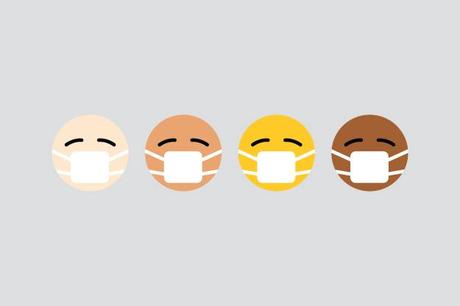Concerns about the novel coronavirus (COVID-19) appear to be rising in tandem with the numbers of reported cases and fatalities.
Many of us are consciously or unconsciously asking ourselves: what are we going to do?
Until we can answer that question – at least to some extent – I believe our response will be wanting.

Source: Unsplash
From the decades of research conducted on stress, one consistent finding is we need – and therefore seek – some semblance of control. When something such as COVID-19 comes along that is both threatening and uncertain, many of us experience great distress. Part of this is because our sense of control is lacking.
As I wrote previously in my blog entry called “What To Do When Stressed:”
“There are two general ways of coping with stress. First, problem-focused coping involves addressing the underlying causes of a stressor. Second, emotion-focused coping involves addressing the difficult emotions that result.
Furthermore, there is a distinction to be made between avoidance-oriented coping and approach-oriented coping. When we engage in avoidance-oriented coping, we seek to avoid or distract ourselves from the underlying problems giving rise to our stress or the difficult emotions associated with stress. When we engage in approach-oriented coping, we actively seek to address our problems and directly work through the difficult emotion.
Usually, research finds, coping goes best when we use a blend of approach-oriented problem and emotion-focused coping. When we avoid or try to distract ourselves from the problem or the difficult emotion, we tend not to do as well.”
These coping methods suggest some ways to respond now.
We can do everything we can to prevent the transmission of the virus to ourselves and others. This includes cancelling events, intentional social distancing, self-quarantining when sick or after exposure to someone with the virus, coughing or sneezing into the crook of our elbows, washing our hands as well as a Doctor, keeping our hands away from our faces, and regularly disinfecting commonly touched locations. We can develop a plan for helping those more at risk for serious symptoms. We can call the Doctor’s office if we start to feel unwell. These are standard recommendations culled from many sources. They are helpful for giving us some sense of control.
Many of us have an unhealthy tendency to avoid or distract ourselves from difficulties. This is not going to be an effective response to a pandemic. For example, pretending this isn’t happening or minimizing the situation is not only untruthful, it could contribute to greater spread of the virus. It’s critical that we accept, at least for a season, that we are in a new situation. Our lives have changed.
It will be vital for us to have accurate, current information without information overload or bias. I spend some time everyday seeking out information from reputable scientists through reputable news organizations. There is a point, though, where I draw a line. I’ve basically stopped looking at all social media. I am also not paying much attention to politicians or sites with political leanings at this point either – they have too much personal stake in spinning what’s happening.
Very little attention in the mainstream media has been devoted to how individuals are coping with the difficult emotions of this crisis. Again, seeking to entirely avoid or distract ourselves from stress and negative emotions often creates its own problems, as is the case when individuals engage in addictive behaviors to feel better. It will be important for us to have some strategies that allow us to work through our emotions about all this. Some research-supported practices we might implement include exercise, prayer, meditation, journaling, and talking with a friend or mental health provider. Not only do these strategies generally improve our emotional health, they also promote better immune system functioning.
As I’ve said, this is a new situation, and part of what is disorienting is we don’t know what we are going to do. So, assuming the pandemic lasts for a while, and that we are going to be spending some more time at home, without as many social interactions, it may be a good time to re-vision our daily life. How are we going to stay connected to family, friends, colleagues, and communities in which we are a part? What do we want to do with our increased time at home? Are there any new opportunities? How are we going to take care of ourselves and our loved ones? How are we going to carry on in our work, volunteering, parenting, and financial commitments? Writing some thoughts about these kinds of questions may bring some clarity.
Finally, although this can be difficult, it will be helpful to trust. Trust yourself. Trust your body. Trust the people around you. Trust that leaders will make good decisions. Trust the health care system. Trust that, no matter what happens, you’ll be alright. Trust that this season of pandemic will come to an end.
Because it will.
This, too, shall pass.
